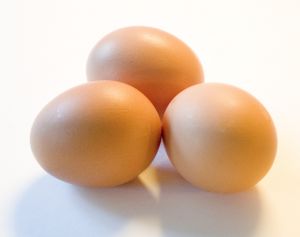Gallbladder Health
 |
What is Gallbladder ? |
When you think of popular breakfast foods, it’s hard to look past eggs. Eggs are also nutritious, packing lots of protein and choline, which can help in brain functionality. Unfortunately, they’re also high in fat, which can present serious problems to people dealing with gallbladder issues, like gallstones.
What is the gallbladder?
The gallbladder is a small pear-shaped organ that sits next to the liver. It’s main function is to store and concentrate the bile that is produced in the liver. When fat is consumed in the diet the gallbladder contracts to release bile back into the digestive tract for fat digestion.
What are gallstones?
Gallstones are accumulations of crystals that join together to form stones. The stones can be composed of cholesterol (the most common), calcium salts, bilirubin or other bile pigments. They can vary in size from very small (grains of sand or gravel) to as large as a golf ball. A person can have gallstones and never know they are there. Other people develop symptoms known as biliary colic or cholecystitis (inflammation of the gallbladder).
Gallstones are more common in women, people who are overweight, over 40 years of age, during pregnancy, after sudden weight loss or in people who consume a high-fat, high-sugar, low-fiber diet.
The symptoms of gallstone attacks vary but typically include some
- Abdominal pain (often right sided)
- Back pain or shoulder pain (often right sided)
- Nausea and vomiting
- Pain that begins after consuming a fatty meal
- Pain that gets steadily worse
- Pain lasting from 30 minutes to several hours
- No symptoms between attacks
- Fever (can indicate serious blockage – see a doctor immediately)
The best way to determine if you do have gallstones is with an abdominal ultrasound.
What is the recommended diet for people with gallstones?
Certain foods are better tolerated by people with gallstones. In general a low-fat, high vegetable and fruit diet is the best for managing symptoms of gallstones. A vegetarian diet is associated with a low incidence of gallstones.
Foods that are recommended for people with gallstones:
- Beets (very good for the liver and gallbladder)
- Cucumber
- Sweet potatoes
- Tomato sauce
- Salmon,
- Grapes
- Apples
- Blueberries
- Lemons
- Pears
- Coconut
- Flax seed oil
- Vegetable juices
- Garlic
- Onions
- WATER – 2 l per day
Foods that should be avoided:
- Deep fried foods
- Eggs ( up to 95% of patients)
- Pork
- Turkey
- Chicken
- Beef
- Nuts
- Legumes
- Dairy (milk, butter, cheese, cream, ice cream)
- Gluten grains
- Corn
- Coffee (can decrease the risk of developing gallstones, but can aggravate existing gallstones)
- Oranges, grapefruit
- Chocolate
- Alcohol
- Cabbage
- Cauliflower
- Carbonated beverages
In addition to avoiding these foods you should also avoid large meals, especially late in the evening. Once you are symptom free and ready to re-introduce dairy and meat products, select low fat options.
Several supplements that can support the function of the gallbladder and decrease symptoms of gallstones.
Increase dietary fiber – Diets high in water-soluble fiber (from fruits, vegetables, oat bran and guar gum) decrease cholesterol levels – a primary goal of gallstone treatment. A good source of fiber is to mix 1 tablespoon of ground flaxseed into one serving (8oz or ½ cup) of organic applesauce and consume daily.
Vitamin C – 1000 mg a day
Lecithin – a phospholipid that reduces cholesterol in bile
Other botanicals with liver and gallbladder specific actions can be used as dandelion and milk thistle.


Comments
Post a Comment